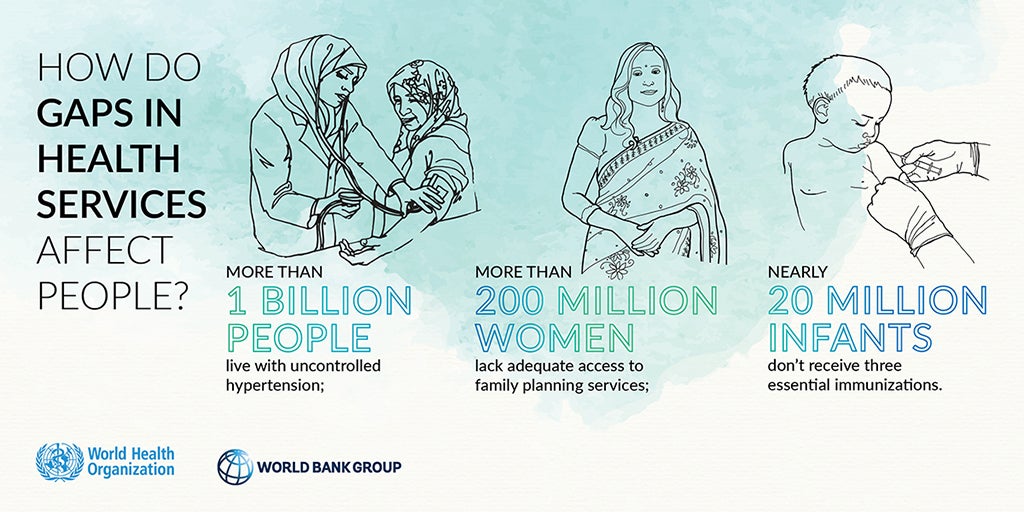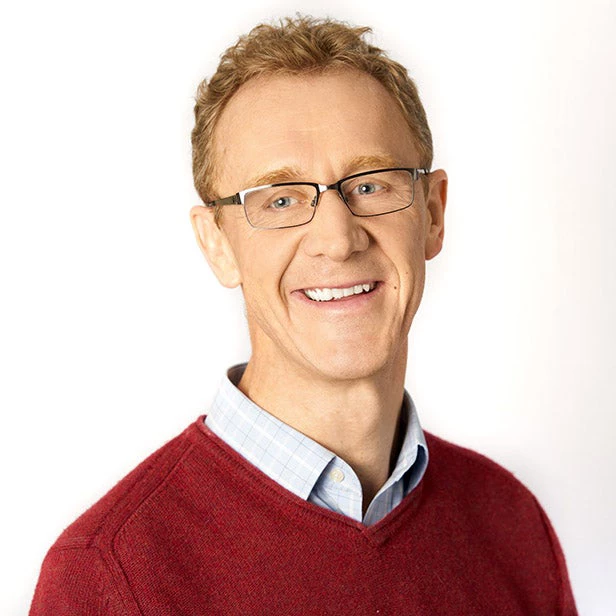
Full infographic
This commentary first appeared on the UHC2030 website. Full list of authors: Craig Burgess, Anna Marriott, Khuat Thi Hai Oanh, Bruno Rivalan, James Sale
Despite the international commitment to UHC, half of the world’s 7.3 billion people do not have access to essential health services; the number of people impoverished by health spending remains unchanged; and catastrophic health expenditure is on the rise. Health coverage has been increasing at a rate of just over 1% per year.
The report’s findings leave no room for doubt – progress is too slow and in the case of financial protection, many countries are travelling in the wrong direction. Inequalities in service coverage remain unacceptably high.
The greatest obstacles to progress are lack of political will and financial constraints. On top of systemic challenges - including the shortage of health workers, unaffordable and inaccessible medicines, and poor procurement - exclusion from health services is largely driven by inequality and discrimination. In some countries, donor agencies and governments appear more interested in enabling a greater role for health care businesses than in delivering on their duty to fulfil the right to health. The WHO and World Bank should be categorical – national approaches that fail to redress or exacerbate health inequalities can no longer be called universal health coverage (UHC). There must be renewed efforts to reduce inequality by placing equity at the core of all interventions in alignment with the SDG commitment of Leaving No One Behind.
When public financing is low, regressive out-of-of pocket spending fills the gaps and exposes millions to financial insecurity and impoverishment. Countries must move towards universal health systems funded predominantly by public sources. This will only be possible through domestic resource mobilisation with priority given to progressive taxation. Governments should spend at least 5% of their Gross Domestic Product on the health sector with increased focus on primary health and community systems to provide essential health services. This should in no way be an argument to reduce global solidarity and aid must continue to support countries’ reforms towards UHC.
According to the World Bank and WHO leadership, UHC is within our reach and the capacity is growing to measure success towards this goal. Although much has been accomplished to track progress, the report reveals continuing gaps in data collection, especially in accurately measuring progress in redressing inequality in service coverage and financial protection. Collective action to measure what matters will be critical but even more important is protecting and enabling the ability of citizens to hold their governments and other stakeholders to account.
The report’s findings leave no room for doubt – progress is too slow and in the case of financial protection and tackling discrimination, many countries are traveling in the wrong direction. Inequalities in service coverage remain unacceptably high while the role of civil society and community is far from adequately recognized.
Above all we must remember that behind the numbers are billions of human beings denied their right to health. Human beings who face unimaginable suffering because their governments and the international community are failing them. The UHC monitoring report should not only serve as a wake-up call to national leaders and the global community, but also to citizens and civil society who must stand up, come together and demand that governments around the world walk the talk.



Join the Conversation